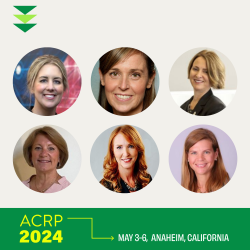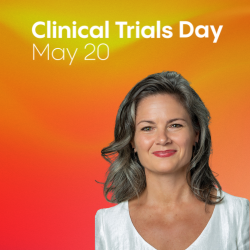Imagine Alex Trebek asking Jeopardy contestants to name a major industry lacking clear career paths. He arches his eyebrow as he intones, “This important workforce doesn’t have mandated classes to take to learn specific requirements, or officially recognized exams to master to demonstrate a required skillset. What’s more, this workforce isn’t given a clear entry point to join the field and can’t rely on consistent job titles and functions.”
Then Jeopardy champ Ken Jennings pipes up, “What is the clinical trial workforce?”
Unfortunately, he’s right. Very right, says Beth Harper, BSOT, MBA, the Workforce Innovation Officer for the Association of Clinical Research Professionals (ACRP). Incredibly, in an industry engaged in life-and-death work designed to improve and prolong lives, “there are no mandatory regulations, standards, or licensure requirements for specific job roles within clinical research, nor standards for internal or external training programs,” she notes.
While organizations like ACRP are working to correct the problem by establishing certifications and standards, savvy clinical trial practitioners shouldn’t wait for their employer or the broader industry to show them the way, Harper says. “You can empower yourself; you can define yourself” as a clinical trial professional by identifying and adopting existing tools and best practices to “shape your own career path,” she explains.
Harper will outline some of the most effective tools and tactics during an ACRP Webinar on ACRP Competency-Based Career Advancement. Many of those tools are available free to ACRP members, she says. Others, such as certification exams, have relatively nominal fees.
For example, ACRP just released an innovative training program that promises to accelerate time to productivity and standardize monitoring performance. The new CRA Core Competency Foundations program builds standardized, monitoring-specific competency in the areas of:
- Verifying Site Qualifications
- Evaluating and Ensuring Adequate Investigator Oversight
- Validating Compliance with the Protocol, Good Clinical Practices (GCPs), and All Human Subject and Data Management Requirements
- Ensuring Proper Investigational Product Management
ACRP’s cutting-edge educational programs offer real-world simulations at different types of sites.
“You don’t need six days of ‘death by PowerPoint’ to learn GCPs,” Harper says. “You need a combination of knowledge and skills training to show you how to actually do your job well.”
Author: Michael Causey
Related Resources
 ACRP’s Partners in Workforce Advancement are proud to provide the following competency guidelines and resources free of charge:
ACRP’s Partners in Workforce Advancement are proud to provide the following competency guidelines and resources free of charge:
Partners in Workforce Advancement is a multi-stakeholder collaborative initiative to grow the clinical research workforce and to set and support standards for workforce competence. Learn More & Get Involved >



